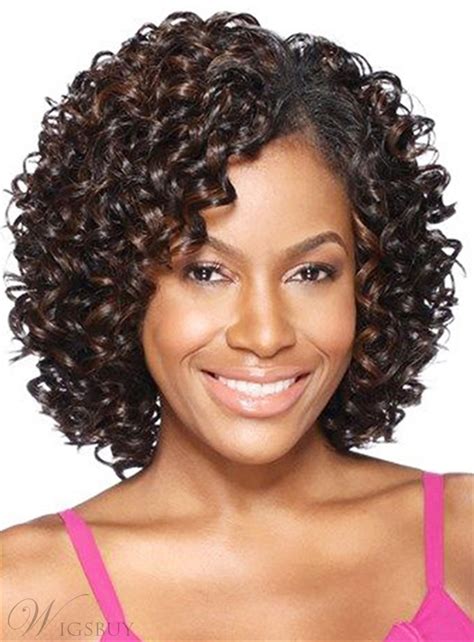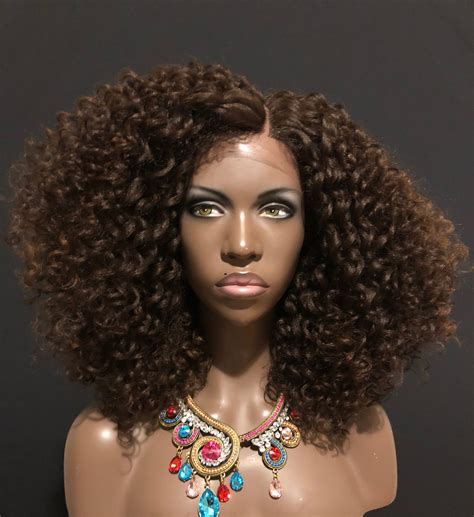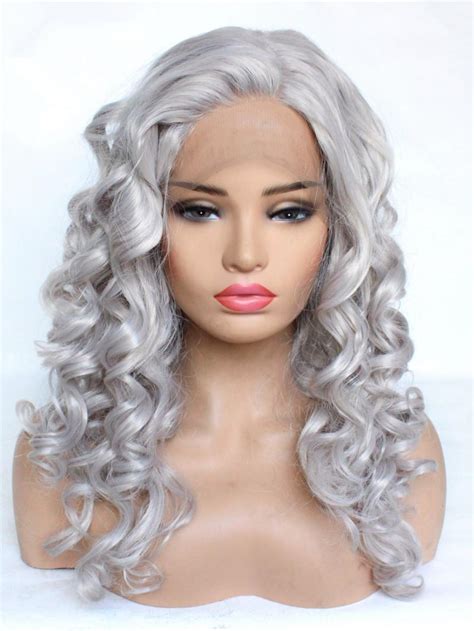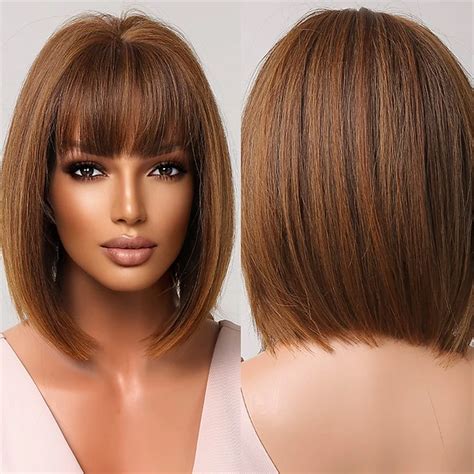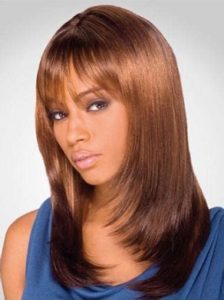Wigs for African American Women The Future of Wigs
7 Natural Looking Short Wigs For African American: Lace Front VS Synthetic Wigs in 2025
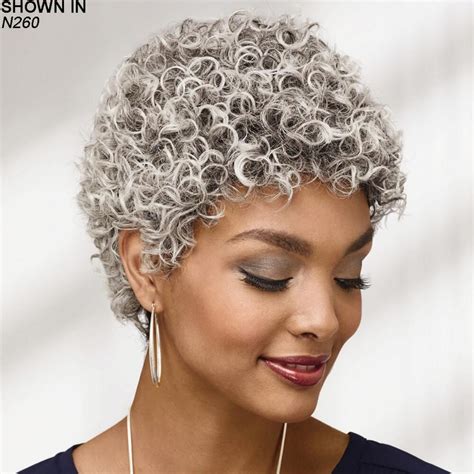
Lace front and synthetic wigs* are two of the most popular wig types on the market today. Both offer great versatility and can be styled to suit any taste. However, there are some key differences between the two types of wigs that you should be aware of before making a purchase.
1. Materials
Lace front wigs, as the name suggests, are made with a lace base that mimics the appearance of a natural scalp. This lace base is applied to the head, and the hair is then individually attached to the lace. As a result, lace front wigs offer a very natural and realistic look. In contrast, synthetic wigs are made with synthetic fibers that are designed to mimic the look and feel of human hair.
2. Comfort
Lace front wigs can be more comfortable to wear than synthetic wigs, as they are less likely to cause scalp irritation. The lace base is also breathable, which helps to keep your head cool and comfortable. However, lace front wigs can be more expensive than synthetic wigs.
3. Hairstyles
Lace front wigs offer more styling versatility than synthetic wigs. While synthetic wigs can only be styled in a few different ways, lace front wigs can be styled in a variety of different ways. This is because the hair on a lace front wig is attached to the lace base individually, which allows you to comb, style, and part the hair in any way you want.
4. Price
Lace front wigs are more expensive than synthetic wigs, ranging from $200 to $1,000 or more. Synthetic wigs, on the other hand, typically cost between $50 and $200.
5. Lifespan
Lace front wigs typically last longer than synthetic wigs. With proper care, a lace front wig can last for several years. Synthetic wigs, on the other hand, typically only last for a few months.
6. Which type of wig is right for you?
If you want a natural-looking and comfortable wig that you can style in a variety of different ways, then a lace front wig is a good choice. However, if you’re on a budget or you want a wig that’s easy to care for, then a synthetic wig may be a better option.
7. How to care for your wig
To keep your wig looking its best, it’s important to care for it properly. Here are a few tips for caring for your wig:
- Wash your wig every 2-3 weeks with a mild shampoo.
- Condition your wig after every wash with a conditioner designed for synthetic hair.
- Brush your wig gently with a wide-toothed comb.
- Style your wig using heat styling tools on a low setting.
- Store your wig in a cool, dry place when you’re not wearing it.
Comparison Table
| Feature | Lace Front Wig | Synthetic Wig |
|---|---|---|
| Material | Lace base with individually attached hair | Synthetic fibers |
| Comfort | More comfortable | Less comfortable |
| Hairstyles | More versatile | Limited versatility |
| Price | More expensive | Less expensive |
| Lifespan | Longer | Shorter |
| Feature | Lace Front Wigs | Synthetic Wigs |
|---|---|---|
| Cost | $200-$1,000+ | $50-$200 |
| Material | Lace with human hair | Synthetic fibers |
| Durability | Lasts for years with proper care | Lasts for a few months |
| Styling | Versatile styling options | Limited styling options |
| Comfort | Comfortable to wear | Can be itchy and uncomfortable |
| Naturalness | Looks and feels like natural hair | Can look unnatural |
| Feature | Lace Front Wig | Synthetic Wig |
|---|---|---|
| Price range | $200 – $1,000 | $50 – $200 |
| Base material | Lace that mimics scalp | Synthetic fibers |
| Hair type | Human hair | Synthetic fibers |
| Styling options | More versatile | Limited |
| Durability | Lasts for years with proper care | Lasts for a few months |
| Comfort | More comfortable | Less comfortable (can be itchy) |
| Natural appearance | More natural-looking | Less natural-looking |
African American women have a wide variety of options when it comes to choosing a wig. There are wigs that are designed to mimic the natural texture of African American hair, and there are also wigs that are available in a variety of colors and styles.
Pain Points
- Wigs can be expensive.
- Wigs can be uncomfortable to wear.
- Wigs can look unnatural.
Motivations
- To look and feel beautiful.
- To protect their natural hair.
- To express their individuality.
Step-by-Step Approach
- Consider your budget.
- Decide what type of wig you want.
- Choose a wig that matches your natural hair texture.
- Choose a wig that is the right color for you.
- Style your wig to suit your taste.
Market Insights
The market for wigs is expected to grow in the coming years. This is due to a number of factors, including the increasing popularity of wigs among African American women.
Highlights
- Wigs are a versatile and stylish way to change your look.
- Wigs can be used to protect your natural hair.
- Wigs can help you to express your individuality.
The future of wigs is bright. As technology advances, wigs are becoming more and more natural-looking and comfortable to wear. In the future, wigs may even be able to be customized to match your exact hair color and texture.
How to Stand Out
- Offer a wide variety of wigs to choose from.
- Provide excellent customer service.
- Educate your customers about wigs.
Improve
- Invest in research and development to create more natural-looking and comfortable wigs.
- Expand your product line to include wigs for different hair types and textures.
- Offer a wider range of colors and styles.
